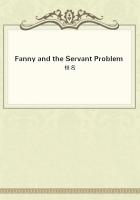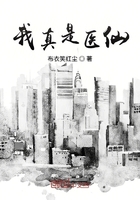But nothing came,save,perhaps,an emphatic crack from the old cabinet that was made by Deacon Brodie,or the dry rustle of the coals on the extinguished fire.It was a calm;or Iknow that I should have heard in the roar and clatter of the storm,as I have not heard it for so many years,the wild career of a horseman,always scouring up from the distance and passing swiftly below the window;yet always returning again from the place whence first he came,as though,baffled by some higher power,he had retraced his steps to gain impetus for another and another attempt.
As I lay there,there arose out of the utter stillness the rumbling of a carriage a very great way off,that drew near,and passed within a few streets of the house,and died away as gradually as it had arisen.This,too,was as a reminiscence.
I rose and lifted a corner of the blind.Over the black belt of the garden I saw the long line of Queen Street,with here and there a lighted window.How often before had my nurse lifted me out of bed and pointed them out to me,while we wondered together if,there also,there were children that could not sleep,and if these lighted oblongs were signs of those that waited like us for the morning.
I went out into the lobby,and looked down into the great deep well of the staircase.For what cause I know not,just as it used to be in the old days that the feverish child might be the better served,a peep of gas illuminated a narrow circle far below me.But where I was,all was darkness and silence,save the dry monotonous ticking of the clock that came ceaselessly up to my ear.
The final crown of it all,however,the last touch of reproduction on the pictures of my memory,was the arrival of that time for which,all night through,I waited and longed of old.It was my custom,as the hours dragged on,to repeat the question,'When will the carts come in?'and repeat it again and again until at last those sounds arose in the street that I have heard once more this morning.The road before our house is a great thoroughfare for early carts.Iknow not,and I never have known,what they carry,whence they come,or whither they go.But I know that,long ere dawn,and for hours together,they stream continuously past,with the same rolling and jerking of wheels and the same clink of horses'feet.It was not for nothing that they made the burthen of my wishes all night through.They are really the first throbbings of life,the harbingers of day;and it pleases you as much to hear them as it must please a shipwrecked seaman once again to grasp a hand of flesh and blood after years of miserable solitude.They have the freshness of the daylight life about them.You can hear the carters cracking their whips and crying hoarsely to their horses or to one another;and sometimes even a peal of healthy,harsh horse-laughter comes up to you through the darkness.There is now an end of mystery and fear.Like the knocking at the door in MACBETH,(2)or the cry of the watchman in the TOUR DE NESLE,they show that the horrible caesura is over and the nightmares have fled away,because the day is breaking and the ordinary life of men is beginning to bestir itself among the streets.
In the middle of it all I fell asleep,to be wakened by the officious knocking at my door,and I find myself twelve years older than I had dreamed myself all night.
III -THE WREATH OF IMMORTELLES
IT is all very well to talk of death as 'a pleasant potion of immortality',but the most of us,I suspect,are of 'queasy stomachs,'and find it none of the sweetest.(3)The graveyard may be cloak-room to Heaven;but we must admit that it is a very ugly and offensive vestibule in itself,however fair may be the life to which it leads.And though Enoch and Elias went into the temple through a gate which certainly may be called Beautiful,the rest of us have to find our way to it through Ezekiel's low-bowed door and the vault full of creeping things and all manner of abominable beasts.
Nevertheless,there is a certain frame of mind to which a cemetery is,if not an antidote,at least an alleviation.If you are in a fit of the blues,go nowhere else.It was in obedience to this wise regulation that the other morning found me lighting my pipe at the entrance to Old Greyfriars',thoroughly sick of the town,the country,and myself.
Two of the men were talking at the gate,one of them carrying a spade in hands still crusted with the soil of graves.
Their very aspect was delightful to me;and I crept nearer to them,thinking to pick up some snatch of ***ton gossip,some 'talk fit for a charnel,'(4)something,in fine,worthy of that fastidious logician,that adept in coroner's law,who has come down to us as the patron of Yaughan's liquor,and the very prince of gravediggers.Scots people in general are so much wrapped up in their profession that I had a good chance of overhearing such conversation:the talk of fish-mongers running usually on stockfish and haddocks;while of the Scots ***ton I could repeat stories and speeches that positively smell of the graveyard.But on this occasion Iwas doomed to disappointment.My two friends were far into the region of generalities.Their profession was forgotten in their electorship.Politics had engulfed the narrower economy of grave-digging.'Na,na,'said the one,'ye're a' wrang.''The English and Irish Churches,'answered the other,in a tone as if he had made the remark before,and it had been called in question -'The English and Irish Churches have IMPOVERISHED the country.'















